Starostas: A Vital Link in Local Self-Governance – Highlights from the Ternopil Regional Forum
The role and development of the starosta institution were the focus of discussion during the First Forum of Starostas in the Ternopil oblast, held on 2 July in the village of Velykyi Khodachkiv.
This was the sixth forum in a series of regional events taking place across Ukraine since December last year.
The initiative for this forum came from the First Deputy Speaker of the Verkhovna Rada of Ukraine, Oleksandr Korniienko, and the NGO “All-Ukrainian Association of Starostas”. It is supported by the Subcommittee on Administrative and Territorial Structure and Local Self-Governance of the Verkhovna Rada Committee on State Power Organisation, Local Self-Governance, Regional Development and Urban Planning. The forum was organised by the Ternopil Oblast Military Administration with the support of the Swedish-Ukrainian programme Polaris: Supporting Multilevel Governance in Ukraine.
Oleksandr Korniienko, Member of Parliament and First Deputy Speaker of the Verkhovna Rada of Ukraine, highlighted the importance of continuous dialogue with starostas:
“It is the starostas who are directly engaged in real decentralisation on the ground. Along with hromada heads and local deputies, they are in constant contact with people. Starostas are there for residents even in the most difficult times. It is incredibly demanding work. In the Verkhovna Rada, we recognise this and are ready to help address all the issues that hinder starostas from performing their duties effectively. There is a broad coalition in Parliament supporting local self-governance. But both you and we need ongoing dialogue and exchange of ideas. That’s why it’s vital that starostas speak up – your voice should be as strong as that of hromada heads.”

Martin Åberg, Ambassador Extraordinary and Plenipotentiary of the Kingdom of Sweden to Ukraine, emphasised Ukraine’s progress in decentralisation and addressed the starostas:
"Supporting Ukraine is the first priority for Sweden’s foreign policy, and we will stand by your side for as long as it takes. Since 2001, we have supported the Decentralisation Reform because we know from our own experience that decisions which are made as close to the people as possible, strengthen communities and make the state more resilient.
Today, as Ukraine is simultaneously defending its freedom and preparing for EU accession, the resilience of local self-government — and with it, your daily work as starostas — becomes particularly important for reinforcing the nation’s resilience and ensuring Ukraine’s successful European progress,” the Ambassador emphasised in his welcoming remarks.
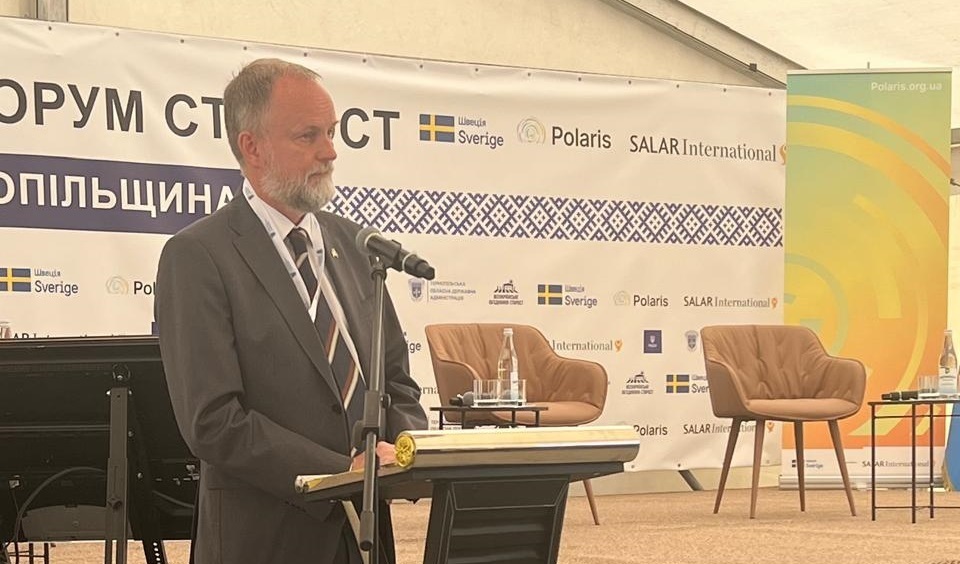
Viacheslav Nehoda, Head of the Ternopil Oblast Military Administration, stated:
“Starostas are like the nervous system of the hromada. They convey impulses from the people directly to the hromada leadership. Over the years, starostas have proven that this position is a vital part of the local self-governance system, and it must be properly reflected in legislation – alongside mayors and village or settlement heads, the position of starosta should be formally acknowledged.”
He also noted that starostas need accurate data and reliable information to engage in effective dialogue with both hromada leadership and citizens, and to identify and utilise resources:
“Starostas should be informed about key indicators – how educational, medical, social, administrative and other services are delivered in their hromada, how businesses operate, what’s happening with the budget, roads, infrastructure. That’s why we’ve created a GIS system in Ternopil region, which we hope local governments will actively use to improve local governance.”
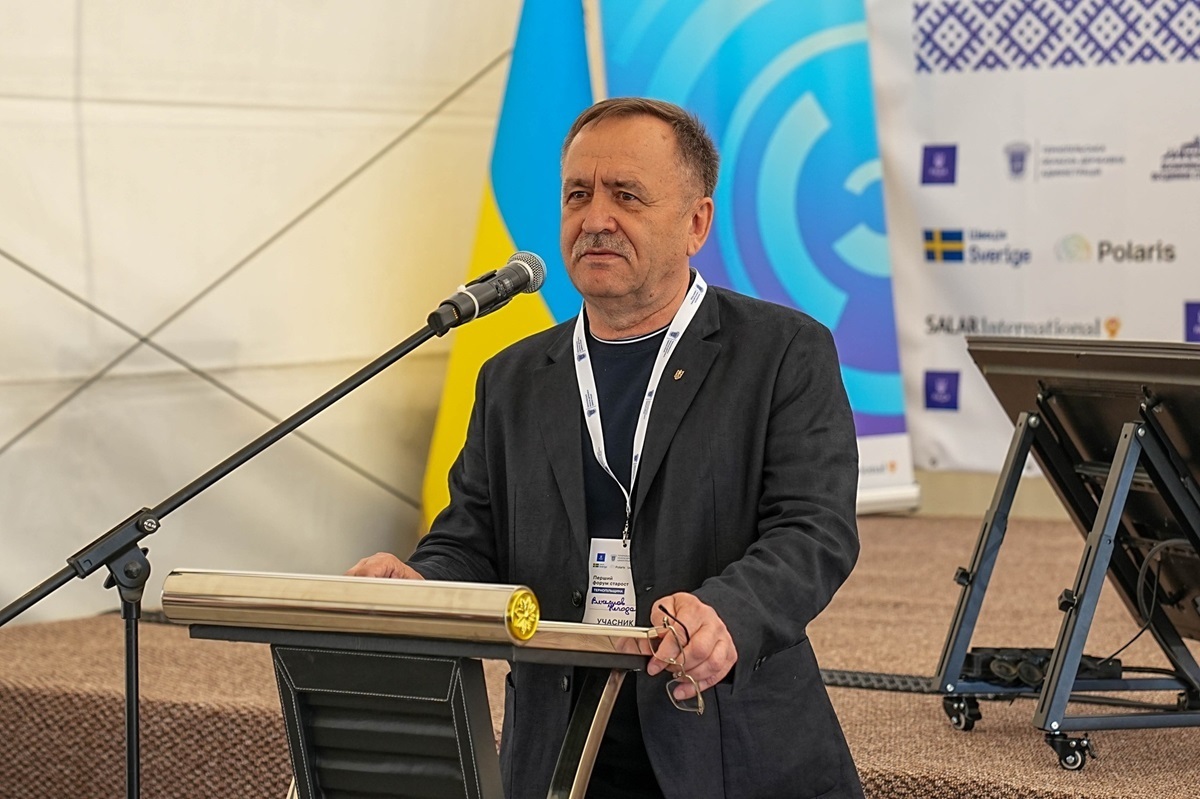
Volodymyr Hevko, Member of Parliament and Deputy Chair of the Verkhovna Rada Budget Committee, stressed the importance of involving starostas in mobilising both internal and external resources – from audits to business dialogues. He also said:
“Starostas should be able to understand and explain to residents why the state sometimes has to make difficult, unpopular decisions that affect communities. Everyone needs to understand that at all levels of government, the number one budget priority is defence and support for those protecting us.”

Continuing the topic of resource mobilisation, Oleksandr Aliksiychuk, MP and Head of the Subcommittee on Inter-Municipal and Regional Cooperation of the State Power Organisation Committee, encouraged starostas to push hromada heads towards inter-hromada cooperation:
“Many hromadas struggle to solve problems alone – some lack financial resources, others human capacity. These challenges can be addressed through cooperation, including with the support of international funding. You may not have time to seek out these resources yourselves or negotiate, but you can constantly remind hromada heads about the importance of cooperation, highlight successful examples, and convince them to act.”
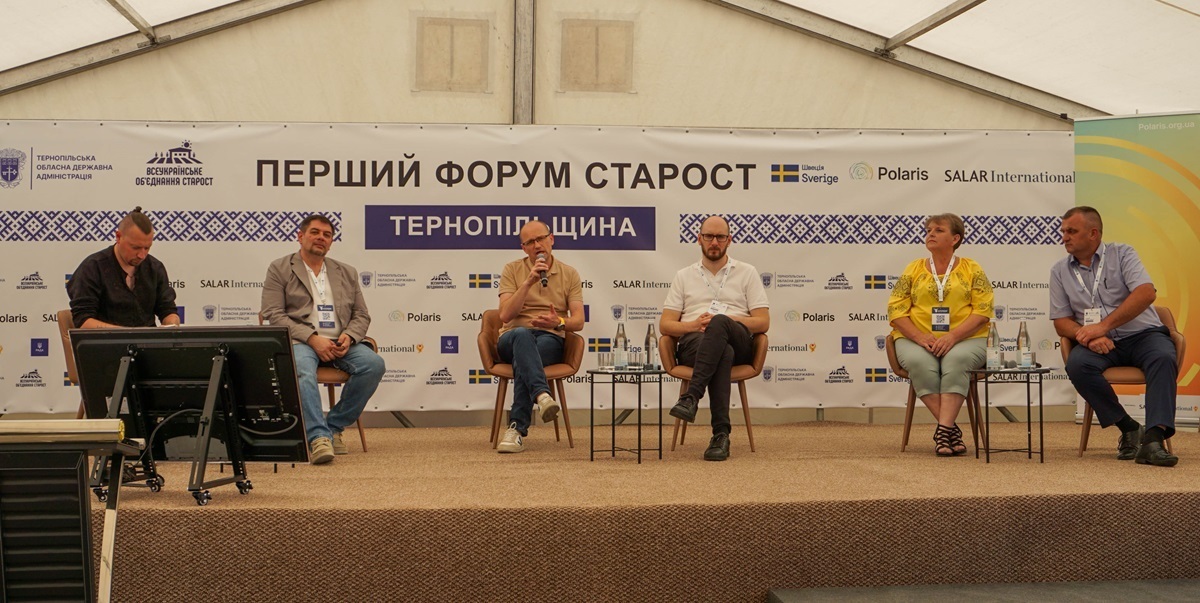
Vitalii Bezghin, MP and Chair of the Subcommittee on Administrative and Territorial Structure and Local Self-Governance, said:
“We must constantly hear the voice of the starostas. In the government quarter, we can pass countless decisions, but without your engagement, without local implementation, it’s unlikely we’d see any positive outcomes. Your views and positions are crucial. Don’t hesitate to voice them – especially at forums like this, where you can speak face to face.”
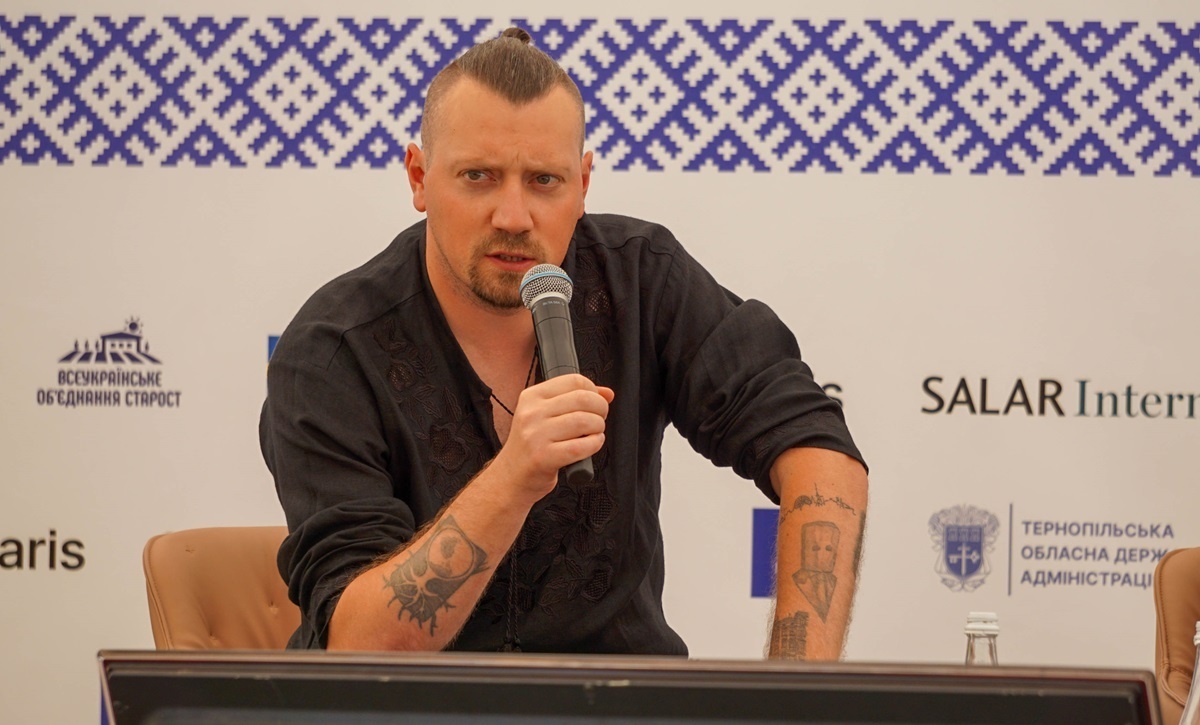
Bohdan Butkovskyi, Chair of the Ternopil Oblast Council, remarked:
“Starostas are not just about order in villages and starosta districts. They’re about democracy, communication, and respect for every individual, no matter where they live. By supporting and developing this institution, we are paving a clearer path towards a democratic European future. When discussing the work of starostas, we must not shy away from hard conversations – we must honestly address problems and strive to resolve them. And starostas, in turn, should not focus solely on local issues but also support national policies, especially those related to patriotic education, support for military personnel, veterans and their families. Now more than ever, unity is vital.”
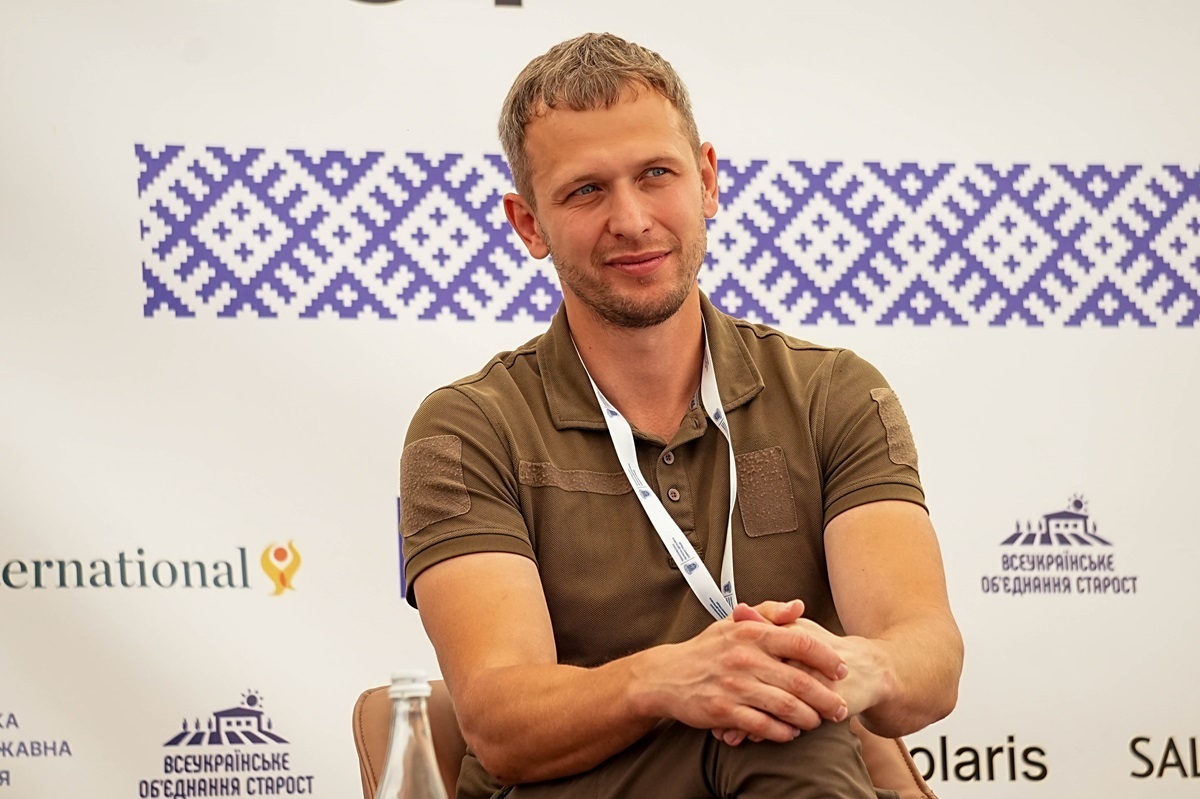
Daniel Popescu, Head of the Department of Democracy and Governance at the Congress of Local and Regional Authorities of the Council of Europe, stated:
“Institutions like the Ukrainian starosta exist in other Council of Europe countries and play a crucial role. While there are no unified European standards for their operation, each country finds the model that works best. In some countries, they serve as mayoral assistants, in others as administrative service providers. The Ukrainian model places starostas as the closest representatives of local authorities to the people, making them incredibly useful to their communities. It’s important that this model was not imposed from above but shaped through extensive discussion and practical experience. That’s why I believe it will prove stable and successful.”
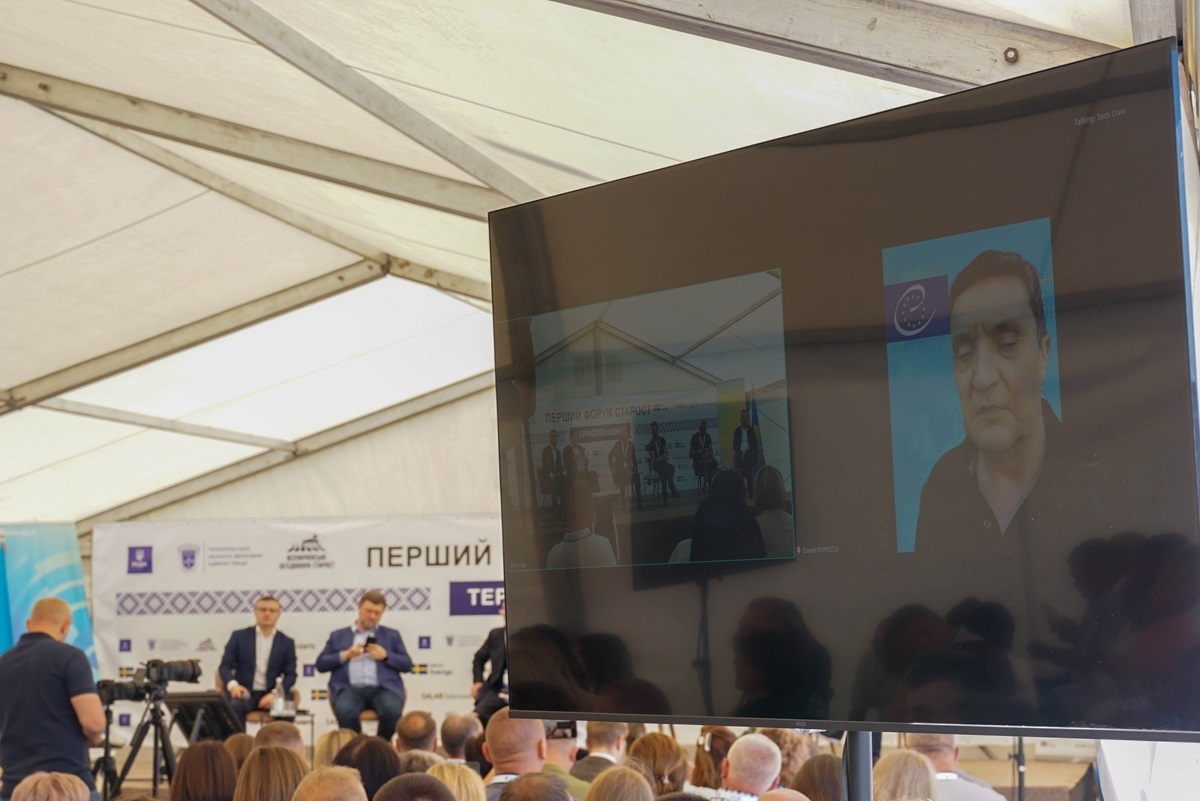
Participants also discussed the findings of the study “Powers of Starostas: Legislative Norms and Practical Implementation”, prepared by the Swedish-Ukrainian Polaris: Supporting Multilevel Governance in Ukraine Programme in cooperation with the NGO DESPRO at the request of the Verkhovna Rada Committee on State Power Organisation, Local Self-Governance, Regional Development and Urban Planning. (More about the study – via the link.)
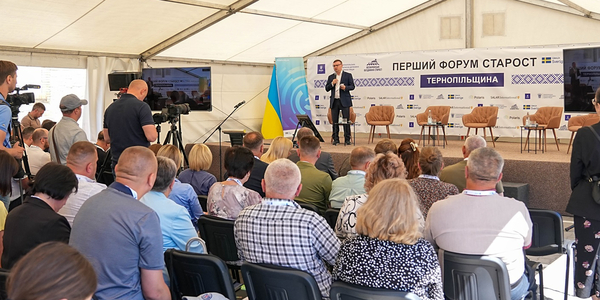
Attached images:
Tags:
Область:
Тернопільська областьSource:
Decentralization portal
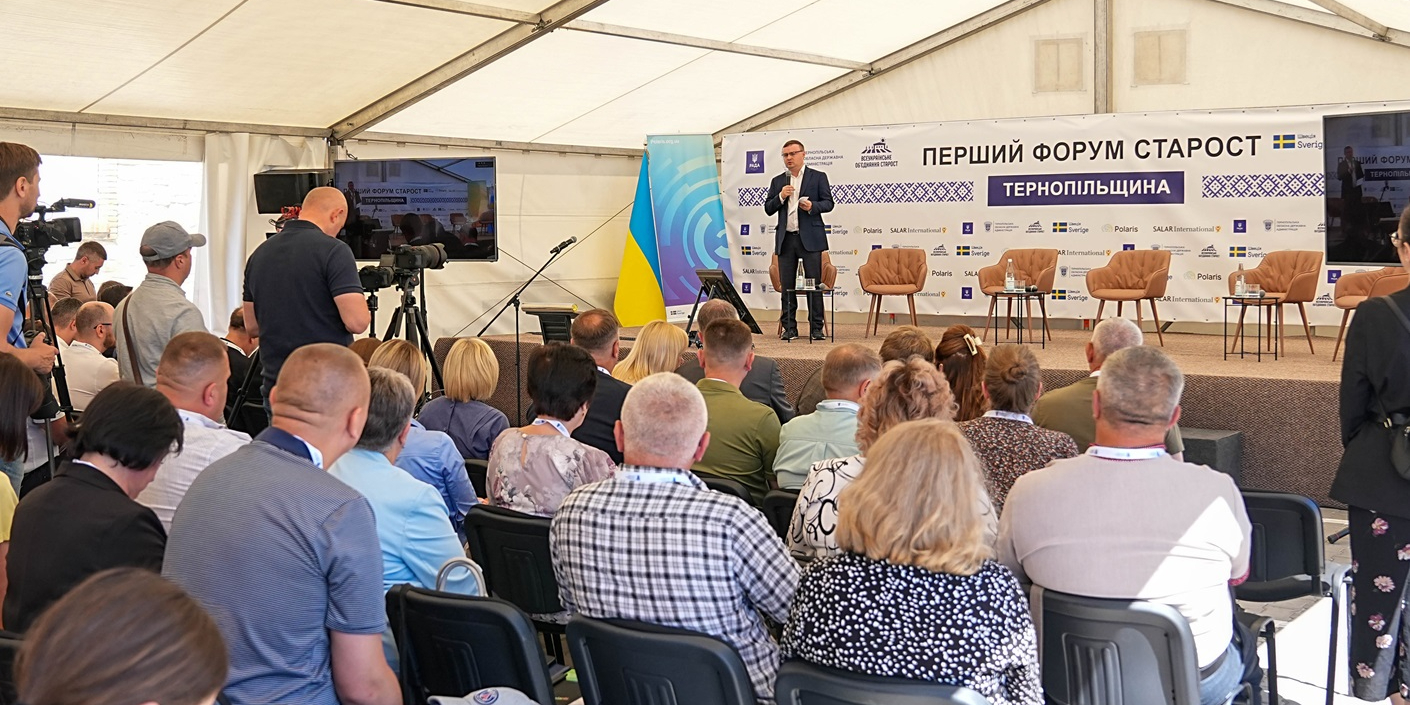
17 February 2026
Ресурсоменеджмент для громад: що (не)робити з відходами, аби вони стали ресурсом
Ресурсоменеджмент для громад: що (не)робити з...
Той, хто володіє ресурсами, володіє світом. Звична логіка керівництва країн, які владу вимірюють покладами...
17 February 2026
Sylna hromada: Systemic recovery as the foundation for Ukrainian resilience
Sylna hromada: Systemic recovery as the...
Four years of Russia's full-scale war against Ukraine have led to the massive destruction of critical infrastructure,...
17 February 2026
Уряд затвердив порядок надання субвенції на розвиток ветеранських просторів у 2026 році
Уряд затвердив порядок надання субвенції на...
11 лютого 2026 року Кабінет Міністрів України ухвалив Постанову №180, якою затверджено Порядок та умови надання у...
16 February 2026
«Гранти – не манна небесна»: як прикордонна...
Коропська громада, що на Чернігівщині, розташована в зоні підвищеної небезпеки через близькість до кордону з рф. Тут...